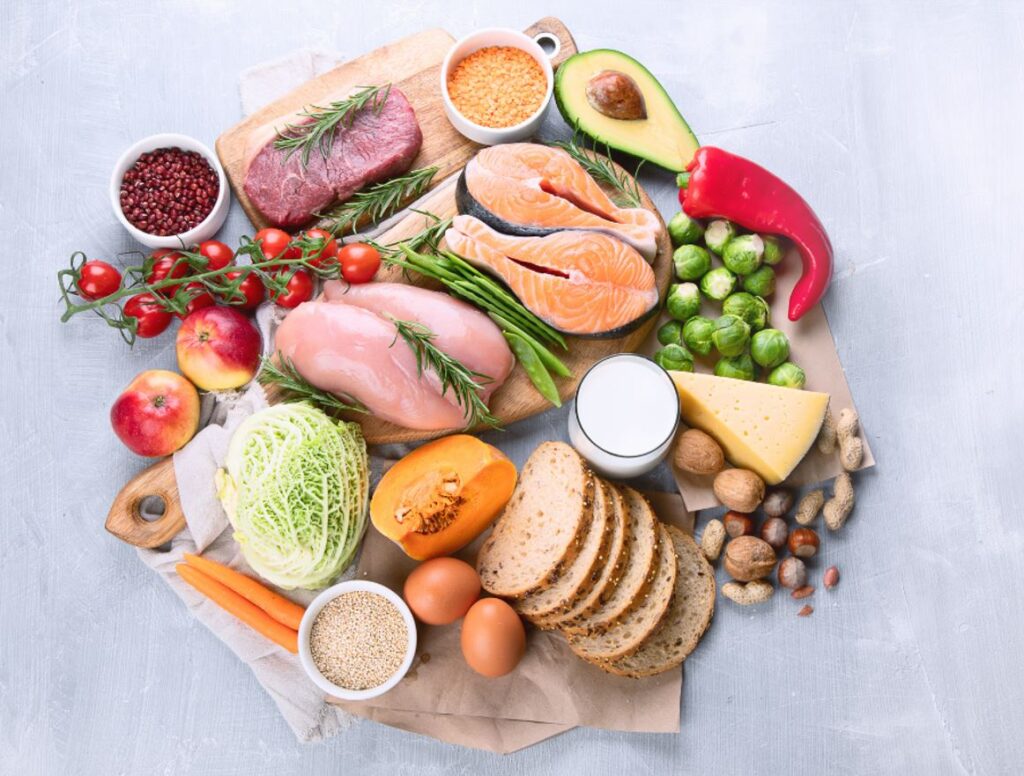The saying, “Let food be thy medicine and medicine be thy food,” attributed to the ancient Greek physician Hippocrates, underscores the profound impact of nutrition on health.
These days, where processed foods often dominate our diets, this wisdom is more relevant than ever. The connection between the food we eat and our overall well-being, including mental health, is undeniable. By making mindful dietary choices, we can support both our bodies and minds, cultivating resilience and vitality.
The Link Between Nutrition and Mental Health
Recent research highlights the intricate relationship between diet and mental health. Nutrient-dense foods play a crucial role in brain function, mood regulation, and emotional stability. For instance, omega-3 fatty acids, found in fish like salmon and plant sources such as flaxseeds, are known to support brain health and reduce symptoms of depression and anxiety. Similarly, foods rich in antioxidants, like berries and dark leafy greens, combat oxidative stress, which is linked to neurodegenerative diseases and mood disorders.
On the other hand, diets high in processed sugars and unhealthy fats have been associated with increased risks of depression and anxiety. These foods can disrupt gut health, often referred to as the “second brain,” which significantly impacts emotional and cognitive functioning. By prioritizing whole, nutrient-rich foods, individuals can foster improved mental clarity, better stress management, and enhanced overall mental well-being.
Food as Medicine for Physical Health
The benefits of a nutrient-dense diet extend beyond mental health. Consuming foods rich in vitamins, minerals, and phytonutrients strengthens the immune system, reduces inflammation, and supports organ function. For instance, incorporating cruciferous vegetables like broccoli and cauliflower can detoxify the liver, while citrus fruits provide a boost of vitamin C to ward off infections.
Furthermore, functional foods such as turmeric, ginger, and garlic are renowned for their anti-inflammatory and immune-boosting properties. Incorporating these ingredients into daily meals can serve as a natural defense against chronic illnesses, including heart disease, diabetes, and arthritis. By viewing food as a form of preventative medicine, individuals can take proactive steps toward long-term health.
Practical Steps to Nourish Your Body and Mind
- Start Small: Incorporate one new nutrient-dense food into your meals each week. For example, swap sugary snacks for nuts or fresh fruit.
- Hydrate: Water is essential for nutrient absorption and overall bodily function. Aim for at least eight glasses a day.
- Plan Ahead: Preparing meals in advance reduces reliance on processed foods and ensures balanced nutrition.
- Mindful Eating: Slow down and savor your meals. This practice aids digestion and prevents overeating.
- Seek Guidance: If dietary changes feel overwhelming, consult with a registered dietitian or nutrition-focused counselor to create a plan tailored to your needs.
At Virtual-Counseling.com, we understand the interconnectedness of mind and body. Our licensed professionals can guide you in addressing mental health challenges holistically, incorporating evidence-based practices to support your journey to wellness. By embracing the philosophy of “Let food be thy medicine,” you can take meaningful steps toward a healthier, more balanced life.
